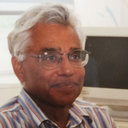Status of antioxidants and other biochemical abnormalities in children with dengue fever.
Keywords
Abstract
During an outbreak of dengue fever in 1996, 66 children between 45 days and 12 years of age with dengue fever and 25 healthy controls were studied for antioxidants and other biochemical abnormalities. As per World Health Organization (WHO) criteria, 14 children were classified as having classical dengue (DEN), 42 with dengue haemorrhagic fever (DHF), and 10 (including three who died) as having dengue shock syndrome (DSS). Superoxide dismutase (SOD), glutathione peroxidase (GPX), and albumin (ALB), the three main antioxidants studied, were found to be abnormal in 96, 94, and 40 per cent of the cases respectively. The levels for aspartate aminotransferase (AST), alanine aminotransferase (ALT), creatinine phosphokinase (CPK), total protein (TP), total cholesterol (CHO), and triglycerides (TGL) were abnormal in 79, 50, 30, 93, and 67 per cent of the cases respectively. Among the different groups of dengue the abnormalities were more marked in children with DSS than in those with DEN and DHF, especially with respect to ALB, TP, TGL, AST, ALT, and CPK (p < 0.005). This preliminary report of dengue confirms the assumption of free radical generation and alteration in antioxidant status during acute illness. However, to understand their complex interaction in disease progression and therapeutic utility, further studies are required.


